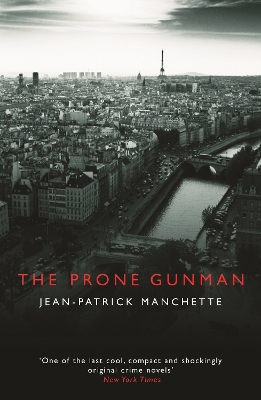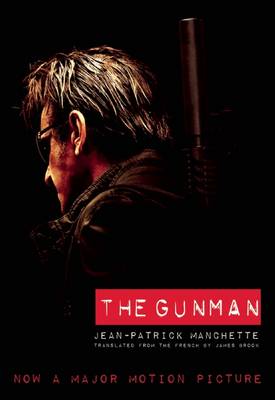City Lights Noir
2 total works
A deadly professional assassin prized for his aim and reflexes, Martin Terrier returns to Paris after his latest job determined to get out of the game. Ten years ago he made a promise to return to his childhood sweetheart in the south of France, and he wants to get married and settle down. But his employers have other plans. A key target - an Arab oil magnate - is flying in to Paris, and there is only one man fit for the task of eliminating him. As Martin is tailed southwards, it appears his employers will stop at nothing to regain his service. In a style ruthlessly stripped of all sentiment, Jean-Patrick Manchette delivers a masterclass in lean, muscular storytelling. Each moment in the suspense plot is described in forensic detail, and violent shocks are executed with unflinching accuracy. Perhaps most compelling are the tantalising glimpses ? betrayed by the barest physical ticks ? that Manchette offers us into the otherwise inscrutable inner life of his protagonist, the prone gunman.
The Gunman, originally published as The Prone Gunman, is now a major motion picture starring Sean Penn. This is the official movie tie-in edition. The film, opening March 20th, 2015, also stars Javier Bardem, Idris Elba and Ray Winstone, and is directed by Pierre Morel (Taken).
About The Gunman: Terrier is a hired killer who wants out of the game, so he can settle down and marry his childhood sweetheart. But the Organization won't let him go: they have other plans for him. In a violent tale that shatters as many illusions as bodies, Jean-Patrick Manchette subjects his characters and the reader alike to a fierce exercise in style. This tightly plotted, corrosive parody of "the success story" is widely considered to be Manchette's masterpiece, and was named a New York Times "Notable Book" in 2002. The Gunman is a classic of modern noir.
Also available in its original edition titled The Prone Gunman, along with Manchette's Three to Kill, published by City Lights in 2002.
"For Manchette and the generation of writers who followed him, the crime novel is no mere entertainment, but a means to strip bare the failures of society, ripping through veils of appearance, deceit, and manipulation to the greed and violence that are the society's true engines." Boston Globe
"There's not a superfluous word or overdone effect . . . one of the last cool, compact and shockingly original crime novels Manchette left as his legacy to modern noir fiction." New York Times
Jean-Patrick Manchette was a French crime novelist credited with reinventing and reinvigorating the genre. He wrote ten short novels in the 1970s and early 80s, and is widely recognized as the foremost French crime fiction author of that time. His stories are violent, existentialist explorations of the human condition and French society. Jazz saxophonist and screenwriter, Manchette was also a left-wing activist influenced as much by the writings of the Situationist International as by Dashiell Hammett.
About The Gunman: Terrier is a hired killer who wants out of the game, so he can settle down and marry his childhood sweetheart. But the Organization won't let him go: they have other plans for him. In a violent tale that shatters as many illusions as bodies, Jean-Patrick Manchette subjects his characters and the reader alike to a fierce exercise in style. This tightly plotted, corrosive parody of "the success story" is widely considered to be Manchette's masterpiece, and was named a New York Times "Notable Book" in 2002. The Gunman is a classic of modern noir.
Also available in its original edition titled The Prone Gunman, along with Manchette's Three to Kill, published by City Lights in 2002.
"For Manchette and the generation of writers who followed him, the crime novel is no mere entertainment, but a means to strip bare the failures of society, ripping through veils of appearance, deceit, and manipulation to the greed and violence that are the society's true engines." Boston Globe
"There's not a superfluous word or overdone effect . . . one of the last cool, compact and shockingly original crime novels Manchette left as his legacy to modern noir fiction." New York Times
Jean-Patrick Manchette was a French crime novelist credited with reinventing and reinvigorating the genre. He wrote ten short novels in the 1970s and early 80s, and is widely recognized as the foremost French crime fiction author of that time. His stories are violent, existentialist explorations of the human condition and French society. Jazz saxophonist and screenwriter, Manchette was also a left-wing activist influenced as much by the writings of the Situationist International as by Dashiell Hammett.

